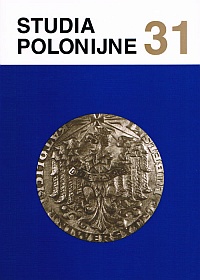Polskie zespoły i chóry na współczesnej Białorusi (po 1989 r.). Geneza, działalność, dorobek, problemy, perspektywy (cz. II)
Main Article Content
Abstrakt
According to official data, Poles in Belarus constitute a population of nearly 500,000 people; reality however deems this figure twice as high. The ZSRS authority has employed its absolute assimilative politics against the Poles, and as a result, over the past 40 years those people have been stripped of all identity preserving institutions. Only after well-known political alterations took place in this country, could the rebirth and development of Polish socio-cultural life begin. The movements’ most important manifestations in the past decades have been various forms of Polish education and partly the developing Polish school system. In the year 1988, the Polish Cultural-Educational Association (Polskie Stowarzyszenie Kulturalno-Oświatowe) in the name of Adam Mickiewicz was founded, and shortly after in 1990 was reformed in to stand as the Polish Union in Belarus, whose sole purpose was to represent the cultural interests of the Polish minority in the country. With its formation began the development of Polish choirs’, folklore ensembles and amateur acting companies for children, adolescents and adults. An author, unknown to the Polish audience, characterized 64 ensembles and choirs in Belarus, which operated, and still might be, between the years 1989-2003, in an article based on materials the author gathered in 2000-2003 years. Matters such as: genesis, income, business, and problems and perspectives of choirs and companies were pointed out. The functioning of these ensembles heavily relied on aid from numerous Polish organizations, institutions, enterprises, emigration societies and private donations. It should be noted that these contributions took on a vast array of forms, ranging from instrumental supplies, microphones, costumes and essentials, organization of performance routes, advertising, transportation and financial transfers. After years of horrible losses and half a century of assimilating oppression, the amateur artist movement stands a key element in the rebirth of Polish identity in Belarus.

